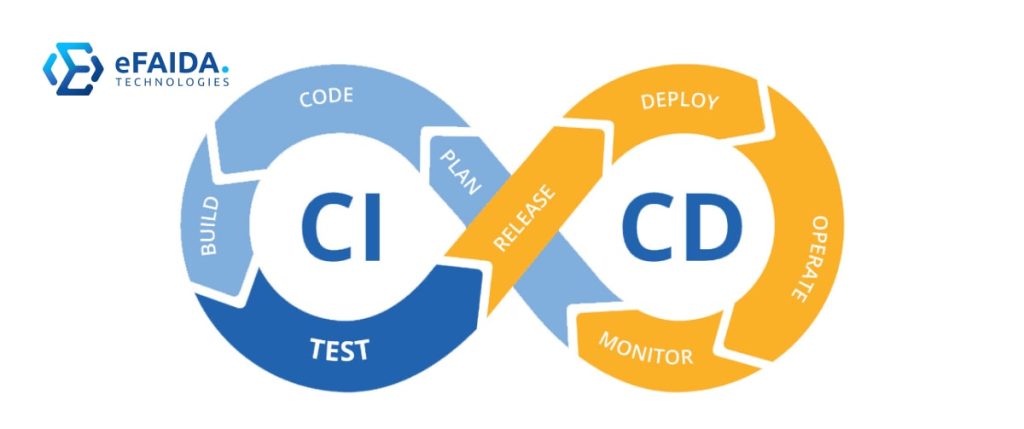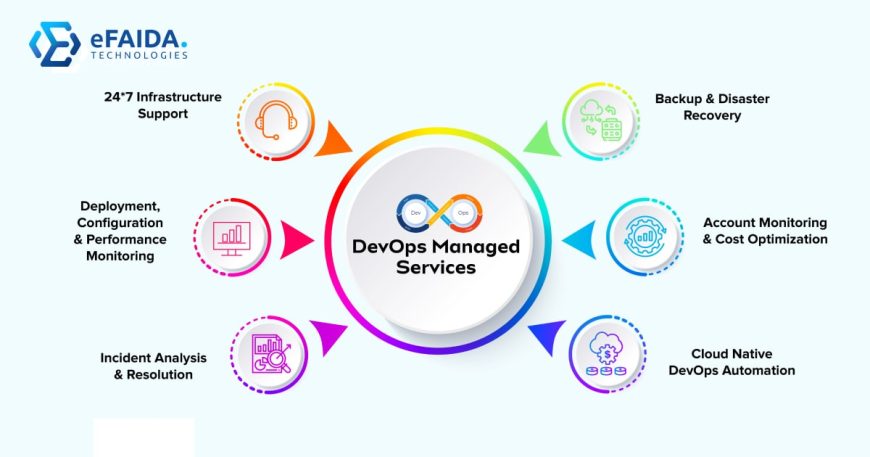Introduction
DevOps as a managed service or DaaMS is a growing trend that is redefining the approach that enterprises take towards their software delivery and operations. Outsourcing encourages the integration of high service quality, precise tools, and techniques offered by MSPs (Managed service providers) to enhance the speed of work, organizational performance, and better coordination. However, optimizing DaaMS presents another set of challenges and in order to address them properly, certain best practices need to be attached to it. In this article you can read, what is the best practice in the GS DevOps Managed Service field and find answers to such questions.
Understanding DevOps as a Managed Service
DevOps can therefore be taken as a managed service where the management of the initiatives and practices of DevOps is outsourced to a third party. This involves putting in place, sustaining, and enhancing practices and methods used in CI/CD, which encompasses DevOps and entails a frequent evaluation and launching of codes and updates on development, testing, and production environments. With help from MSP services, organizations are provided with expert advice, infrastructure, and support for the smooth running of DevOps.
Best Practices for DevOps as a Managed Service
- Define Clear Objectives
There are also questions that need to be answered before DevOps is implemented as a managed service, and those questions include objectives. Define what you want to accomplish concerning DevOps, and this is where you should look for its goals and objectives and match them with your organizational goals.- Strategic Alignment: XX Ensure that DevOps objectives are consistent with organizational goals and mega-trends.
- Measurable Goals: Some of these objectives may be measurable in terms of time such as: cutting down the time to market a product, enhancing the quality of software produced, or increasing the likelihood of deploying products in the market.
- Choose the Right Managed Service Provider
The nature and the quality of the chosen provider constitute one of the most important decisions if your DevOps process is to be as efficient as it was destined to be. Select a provider who has been in business for at least three to five years in providing SSO services to clients from your industry and as a bonus, a provider who has an extensive range of services to offer.- Experience and Expertise: It is worthwhile to choose a provider with a reasonable level of experience in DevOps throughout all spheres.
- Service Offerings: Ensure that the provider of the project offers the consulting part for the project before the actual implementation of the project, the part where the project will be implemented, and the part where they will be maintaining the project.
- Foster a DevOps Culture
Two of the critical constituents of DevOps are to bring awareness and understanding of the DevOps model in the organization; the second is to constantly stress the continuous deliveries of values based on teamwork and the sharing of knowledge. Keep the development and the operations team informed so they are aware of each other’s work.- Collaboration Tools: Gather and make resolutions that help in cooperation between the team’s needs.
- Training and Education: The additional elements are to implement succession training and make the education of all employees regarding DevOps an organizational mandate.
- Implement Continuous Integration and Continuous Delivery (CI/CD)
Continuous integration and continuous delivery are the practices that the DevOps approach involves. They should use automation in the adoption of the code in the distinct stages of the testing process, and the release of the code so as to make the releases faster and more reliable.- Automation Tools: The CI/CD pipeline has to be complemented with measurable tools that allow for the automation of specific procedures.
- Testing and Quality Assurance: This should ensure that the CI and the testing and QA interfaces are part of the process to detect errors before they are a concern.
- Focus on Security (DevSecOps)
Security should be integrated into the DevOps process (DevSecOps) to ensure that applications are secure from the start. Automate security testing and continuously monitor for vulnerabilities.
Automated Security Testing: Incorporate automated security testing into the CI/CD pipeline
Continuous Monitoring: Implement continuous monitoring to detect and respond to security threats in real time.
- Leverage Infrastructure as Code (IaC)
Infrastructure as Code (IaC) allows you to manage and provision infrastructure through code, ensuring consistency and reducing the risk of human error.
Version Control: Use version control systems to manage infrastructure code.
Automation and Orchestration: Automate the provisioning and management of infrastructure using orchestration tools.
- Regularly Review and Improve Processes
DevOps is a continuous journey of improvement. Regularly review your processes and practices to identify areas for improvement and implement changes as needed.
Feedback Loops: Establish feedback loops to gather input from team members and stakeholders.
Continuous Improvement: Foster a culture of continuous improvement where teams are encouraged to experiment and innovate.

Conclusion
DevOps as a managed service offers significant advantages for organizations looking to enhance their software development and IT operations. By following best practices such as defining clear objectives, choosing the right provider, fostering a DevOps culture, implementing CI/CD, focusing on security, leveraging IaC, monitoring performance, and continuously improving processes, organizations can fully realize the benefits of DevOps.
As businesses continue to seek agility, efficiency, and innovation, DevOps as a managed service stands out as a transformative approach that drives success in the digital age.
FAQs about DevOps as a Managed Service
- What is DevOps as a managed service?
DevOps as a managed service (DaaMS) entails the act of outsourcing the practices of DevOps to a third-party vendor. This entails the deployment, support, and improvement of methods and technologies to improve software construction and Information Technology management. - What are the benefits of DevOps as a managed service?
DaaMS’s advantages are knowledge acquisition, cost reduction, shortening time-to-market, the model’s scalability, security, and outsourcing of essential business functions. - How do I choose the right managed service provider for DevOps?
Select a provider that has a positive reputation, at least 3 years of work experience in DevOps, and a wide range of services. Ensure the provider you select has a track record of previous implementations, especially in your industry. - Why is fostering a DevOps culture important?
DevOps culture is characterized by communication, collaboration, the sharing of information and knowledge as well as sharing of values which are crucial in DevOps. It makes sure that the development team and the operations team collaborate. - How does continuous integration and continuous delivery (CI/CD) benefit my organization?
CI/CD helps to automate the way that code changes are integrated, tested, and deployed hence leading to faster and more efficient releases. It helps to avoid mistakes that could occur during manual work and guarantees that problems are identified during the development stage. - What is the role of security in DevOps as a managed service?
Security or DevSecOps is incorporated into DevOps to ensure that a product is secure right from inception. This includes self-testing, non-stop surveillance, and threat recognition and management.




